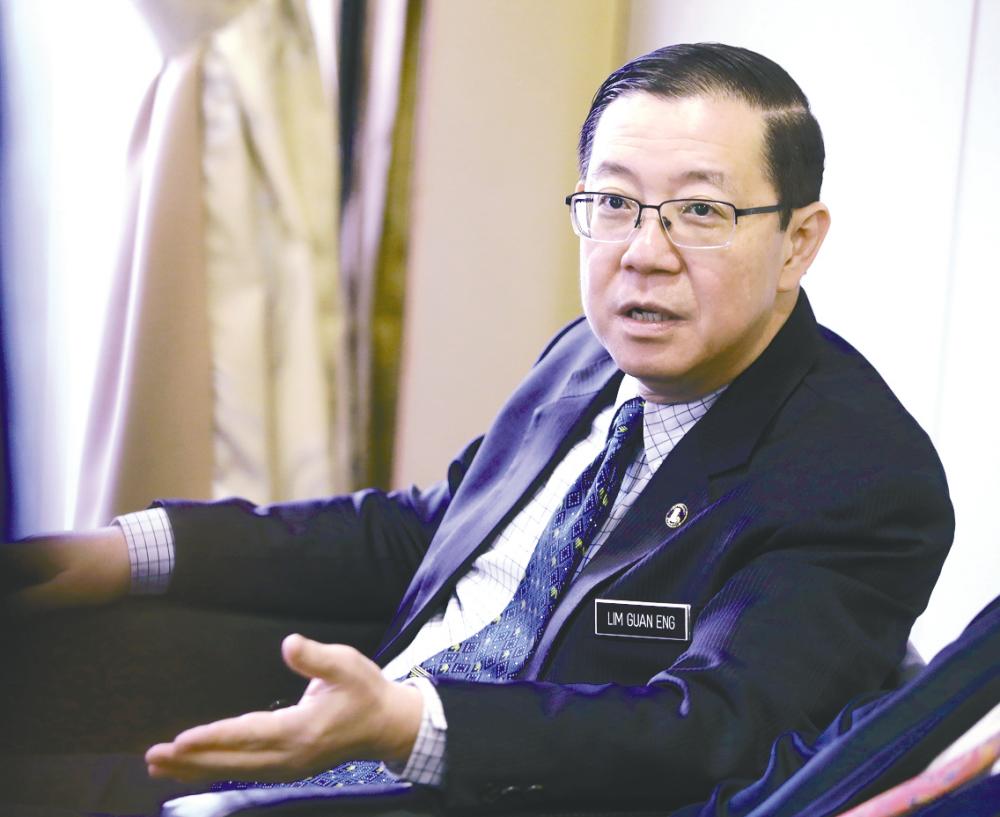KUALA LUMPUR: Finance Minister Lim Guan Eng today confirmed that Malaysia has received an offer for the issuance of Panda bonds from China and said the relevant parties are currently in discussions.
Speaking to reporters at the 12th Malaysian Property Summit, Lim said the offer from China Construction Bank has been communicated to the Prime Minister and the Cabinet.
“But we are still at the discussion stage. Unlike the Samurai bond for which the working paper has been presented to and approved by the Cabinet, and both countries have agreed on it. This one is still at the discussion stage,” he said.
Earlier this week, China’s ambassador to Malaysia, Bai Tian, said China Construction Bank is proposing to issue Panda bonds in China to Malaysia to help alleviate financial stress.
“I see this as a positive sign from other countries and foreign investors, who are confident about the administration of the new government led by Prime Minister Tun Dr Mahathir Mohamad. Because they are confident, they are willing to extend a loan, just like Japan with their Samurai bond. This is something that is being done for the first time since the 80s,” said Lim.
He said such offers from Japan and China reflect the interest of foreign investors in Malaysia and their confidence in the new government, which was not seen before.
He noted the Samurai bond’s coupon rate of 0.65% is below market rate compared with the coupon rate of a Goldman Sachs bond issuance under the previous government which was 100 basis points above the market rate.
The ¥200 billion (RM7.34 billion) 10-year Samurai bond, guaranteed by the Japanese government, will be issued next month, at a coupon rate not exceeding 0.65%. The Samurai bond was initiated by Mahathir, who requested his Japanese counterpart Shinzo Abe for yen-denominated credit in June last year.
The Samurai bond will be used to reduce debt accumulated by the previous government. The Samurai bond sale will be Malaysia’s first in three decades, having last raised such debt in 1989.
Meanwhile, Lim said the government hopes to conclude talks on the East Coast Rail Link (ECRL) but noted the challenge of ensuring that the cost is something that the country can afford while at the same time maintaining good relations with China.
“We still maintain the best of hopes that this matter can be resolved and that they can meet our request for the price reduction. Otherwise we would not be able to afford it,” he said.
Lim said the ECRL is one of the remaining projects to be concluded while most of the other projects that were being reviewed have been finalised.
As for the proposed Airport Real Estate Investment Trust (REIT), which was announced in Budget 2019, he said it is working towards appointing a REIT manager but it has not been finalised yet.
In his keynote address, Lim said the cost of living is still high although consumer price index (CPI) was at 1% in December, which is the lowest inflation rate in nine years.
He said the government is looking at how to ensure the low CPI can be filtered down and allow the public to benefit from the low inflation rate.
He said the CPI is sometimes used as a benchmark for wage increases, which is not so accurate thus the government is looking at another index that can better reflect the cost of living, so that wage rises reflect the actual situation.










